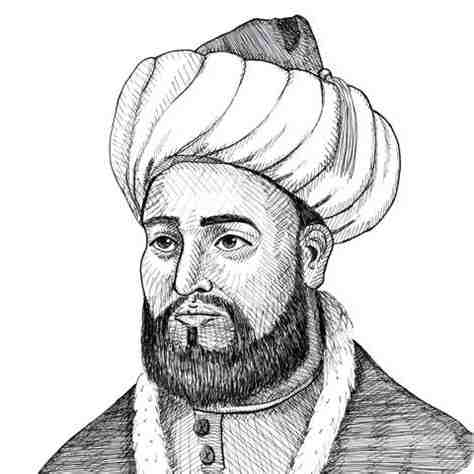Sufi Biography: Imam Ghazali
Imam Ghazali, also known as Abu Hamid al-Ghazali, was one of the most influential and renowned Muslim scholars and philosophers of his time. He was born in 1058 CE in the city of Tus, located in present-day Iran. Ghazali’s intellectual contributions and spiritual insights played a pivotal role in shaping Islamic philosophy and theology.
Early Life and Education: Ghazali was born into a modest family, and his father was a well-respected and pious person. He received his early education in Tus, where he studied Islamic sciences, Arabic grammar, and literature. Recognizing his exceptional talents, Ghazali’s father sent him to the renowned Nizamiyya madrasa in Nishapur, one of the most prestigious centers of learning in the Islamic world at the time. There, he studied under prominent scholars, mastering various disciplines, including jurisprudence, theology, philosophy, logic, and Sufism.
Scholarly Achievements: Imam Ghazali’s intellectual prowess and dedication to his studies allowed him to become a prominent teacher and scholar at a young age. He served as a professor in Nizamiyya madrasa, where he gained a reputation for his exceptional knowledge and teaching abilities. His expertise encompassed a wide range of subjects, making him a respected authority in Islamic scholarship.
Ghazali’s notable works include “Ihya Ulum al-Din” (The Revival of the Religious Sciences), which is considered one of his most influential contributions to Islamic literature. This extensive work discusses various aspects of spirituality, ethics, and Islamic law. It has been widely studied and translated into numerous languages, continuing to inspire readers around the world.
Spiritual Journey and Crisis: Despite his scholarly success, Ghazali experienced a profound spiritual crisis, which led him to question the purpose and meaning of his scholarly pursuits. Seeking answers to his existential dilemmas, he embarked on a personal spiritual journey, leaving behind his prestigious academic position. Ghazali left Baghdad, the center of Islamic scholarship, and wandered through different regions, engaging in deep reflection and contemplation.
During this period of seclusion, Ghazali immersed himself in the study of Sufism, a mystical branch of Islam. He sought to reconcile reason and faith, combining intellectual pursuits with spiritual enlightenment. Through his intense spiritual practices, he underwent a transformative experience that profoundly impacted his perspective on life and knowledge.

Later Years and Legacy: After his spiritual transformation, Ghazali returned to academia and resumed teaching. However, his approach to education and scholarship had evolved. He emphasized the importance of spirituality and the purification of the soul in conjunction with the pursuit of knowledge. Ghazali’s teachings and writings reflected his newfound understanding, emphasizing the significance of inner awakening and introspection.
Imam Ghazali’s works continue to exert a profound influence on Islamic thought and spirituality. His philosophical and theological ideas have inspired scholars, students, and seekers of knowledge for centuries. His teachings on ethics, spirituality, and the path to God remain relevant and cherished by individuals from diverse backgrounds.
Imam Ghazali passed away in 1111 CE, leaving behind a rich intellectual and spiritual legacy. His contributions continue to shape Islamic scholarship, and his emphasis on the integration of knowledge and spirituality remains a guiding principle for seekers of truth. Imam Ghazali’s life and works serve as an enduring source of inspiration for those striving to deepen their understanding of Islam and lead a purposeful, enlightened life.
